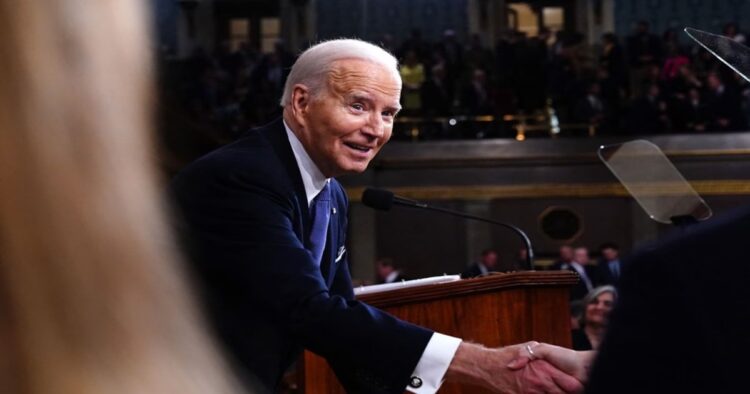President Joe Biden has outlined his vision for a potential second term, presenting an ambitious $7.3 trillion budget aimed at bolstering the economy and addressing key issues. The budget proposal, slated for the 2025 fiscal year, targets raising taxes on corporations and high earners to reduce the deficit and fund new initiatives to aid lower-income individuals grappling with housing and childcare costs.
Biden’s plan includes significant tax increases, such as raising the corporate income tax rate from 21% to 28%, implementing a minimum tax rate of 25% for those with wealth exceeding $100 million, and enabling the government to negotiate lower drug prices. Additionally, the budget allocates funds for reinstating the child tax credit, supporting childcare programs, investing in housing construction, providing paid family leave, and bolstering law enforcement efforts.
In a speech in New Hampshire, Biden criticized former President Donald Trump’s tax policies, emphasizing the need for fairness in taxation and opposing further tax breaks for the wealthy and corporations. However, Republican leaders, including House Speaker Mike Johnson, swiftly rejected Biden’s proposal, denouncing it as reckless spending and a disregard for fiscal responsibility.
The release of Biden’s budget comes in the wake of his recent State of the Union address, where he highlighted stark differences between his administration’s priorities and those of Trump, whom he is expected to face in the upcoming election.
Despite Biden’s efforts to convey his economic agenda, concerns persist among voters regarding high prices and the direction of the economy. According to a Reuters/Ipsos poll, a significant portion of Americans still favor Trump’s handling of the economy over Biden’s.
In contrast to Biden’s tax hike proposals, Trump advocates for increased tariffs on imported goods and deregulation in the energy sector. The debate over tax policy is likely to intensify, especially with key provisions of the Trump tax cuts set to expire soon.
Biden’s budget aims to generate an additional $4.951 trillion in tax revenue over the next decade, primarily through tax increases on businesses and wealthy individuals. Despite efforts to reduce deficit spending by $3 trillion over the same period, the national debt is projected to continue growing, albeit at a slower pace.
While Biden’s budget forecasts modest economic growth and inflation rates, critics argue that the proposed measures fall short of addressing long-term fiscal challenges. With ongoing political divisions and uncertainty surrounding budget negotiations, achieving consensus on fiscal policy remains a formidable task for the Biden administration.

















Comments